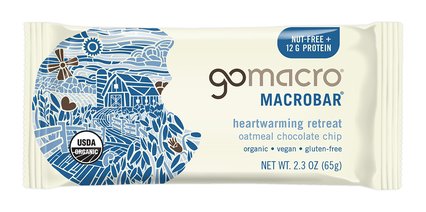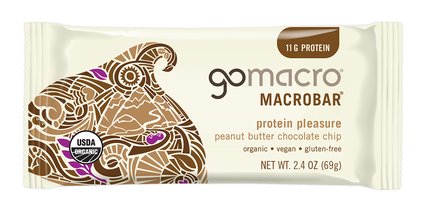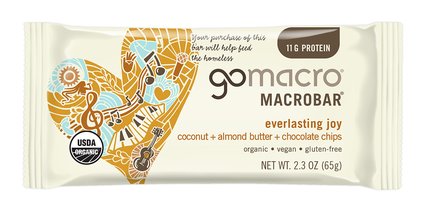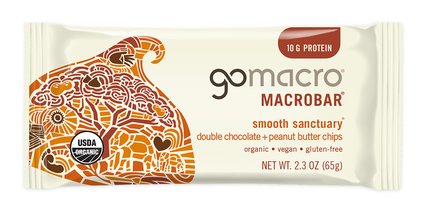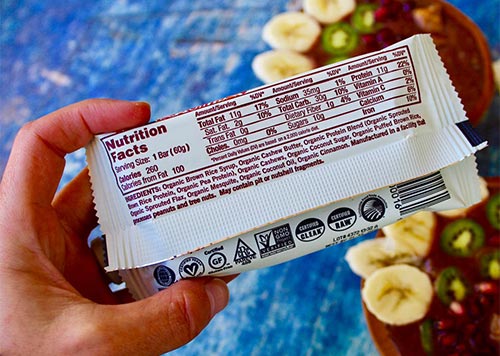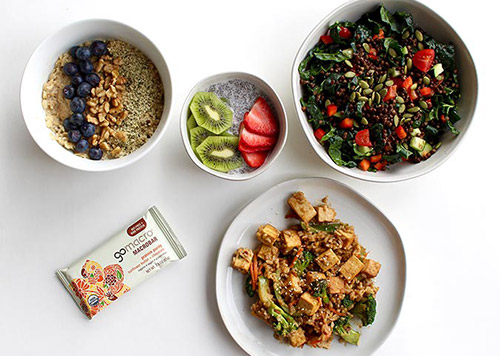How to Get Enough Protein In Your Vegan Diet
Protein is a macronutrient composed of twenty basic building blocks known as amino acids. Only half of your necessary amino acids can be produced by the human body, while the other half, known as “essential amino acids,” must be obtained from the foods we eat.
Protein is vital for the health of your skin, hair, bones and muscles, and it even makes up the hemoglobin that transports oxygen throughout our bloodstream. Contrary to popular belief, protein can be found in numerous plant-based foods, and a diet rich in plant-based protein is linked to a lower risk of heart disease, diabetes, and obesity.
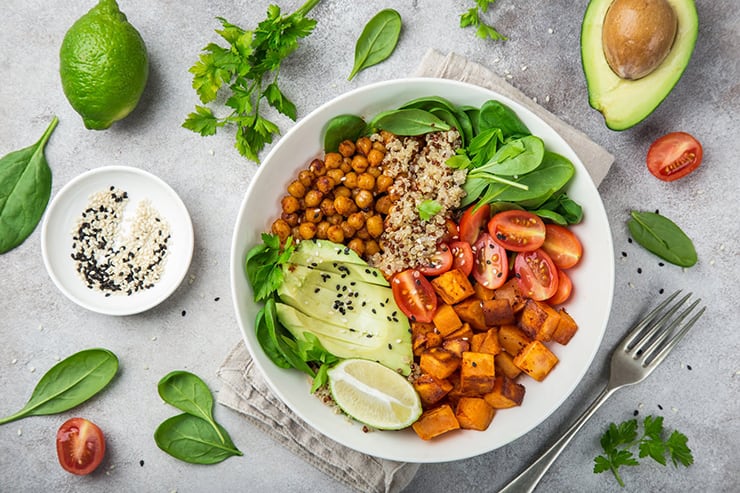
To help answer the question of 'how much protein we really need', we interviewed sports dietitian and fellow plant-based enthusiast, Angie Asche, of Eleat Sports Nutrition. Angie helped us grasp a better understanding of varying protein requirements, what factors could increase your needs, and some common misunderstandings about protein.
“Protein needs can vary based on a number of factors; from a person’s health and fitness goals and activity level, to their age and health status,” says Asche. “While the current Recommended Daily Allowance recommends just 0.8 g/kg body weight per day, this recommendation is doubled for athletes, ranging closer to 1.5-2.0 g/kg/day. Still, for a 150 lb. competitive athlete (68 kg), that comes out to be just over 100 g/day. Recommendations for adults aged 65 and over is slightly higher as well at 1.2 g/kg/day, and for pregnant women at 1.2-1.5 g/kg/day.”
There are quite a few misconceptions surrounding plant-based diets. Angie said the two most common questions she gets are ‘will I be able to get enough protein?’ and ‘will I be able to gain lean muscle without meat?’. Angie says, “Definitely, to both. While vegan or vegetarian diets may not be for everyone, it is absolutely achievable to meet your protein needs AND to gain lean muscle by eating a plant-based diet. You’ve likely heard the saying, ‘aim for a variety of fruits and vegetables in your diet’, the same should go for plant proteins. Consuming a variety of foods containing protein throughout the day, such as pulses (i.e. lentils, beans, peas, chickpeas), nuts, seeds, quinoa and tempeh, will help ensure you obtain the protein and essential amino acids your body needs.”
Can You Get Enough Protein from Plants?
| Plant-Based Foods | Protein (g) |
|---|---|
| Seitan (⅓ cup) | 21g |
| Edamame (1 cup) | 17g |
| Tempeh (½ cup) | 15g |
| Nutritional Yeast (3 Tbsp) | 12g |
| Tofu (½ cup) | 10g |
| Beans, Lentils (½ cup) | 7-10g |
| Hemp Seeds (3 Tbsp) | 10g |
| Nuts (3 Tbsp) | 10g |
| Spirulina (2 Tbsp) | 8g |
| Meat & Dairy | Protein (g) |
|---|---|
| Hamburger (1 ground beef patty) | 15g |
| 2 eggs | 12g |
| Milk (1 cup) | 8g |
As you can see from the chart above, you can easily attain a healthy dose of organic protein by eating the right plant-based foods. One cup of edamame contains 17 grams of protein, compared to a ground beef hamburger which contains 15. Making the switch to plant-based protein sources will not only satisfy your nutritional needs but could also benefit your health, the environment, and your wallet!
Plant-Based Protein Sources
While most plant-based foods contain some amount of protein, items such as lentils, nuts, seeds, and grains like quinoa are wonderful examples of foods that are incredibly nutritionally dense.
The following is a list of simple and delicious ways to incorporate more plant-based snacks into your every day meal planning.
1. Top your Snacks with Nut Butter
Nut and seed butters provide protein, fiber, and essential fatty acids. Add a scoop of your favorite nut butter into your morning smoothie, oatmeal, or spread it on whole grain toast for a delicious, high-protein snack.
2. Make a Protein-packed Salad
Adding foods like kidney beans, chickpeas, quinoa or broccoli to your regular garden salads is a delicious way to up your protein intake. As an added bonus, they also up your fiber intake, keeping you full longer.
3. Sprinkle on some Super Seeds
A three tablespoon serving of hemp seeds has 10 grams of plant-based protein, while the same amount of chia seeds contains 5 grams. Sprinkling high-protein seeds on top of meals you already enjoy, such as avocado toast, sautéed veggies, and falafel, will quickly contribute to your daily protein requirements.
4. Stay Fueled with Vegan Protein Bars
Our certified organic, vegan, and gluten-free MacroBars make for delicious on-the-go snacks. One of our best-selling flavors, Peanut Butter Chocolate Chip, contains 11 grams of plant-based protein, and just like the rest of our products, is made using 100% renewable energy.
Final Thoughts
Plant-based protein sources are often packed with other important nutrients your body needs, such as fiber, iron, magnesium, potassium, vitamin E and vitamin K. By replacing some of your animal proteins with plants, you can greatly improve your well-being while enjoying a diverse assortment of delicious foods. Always be sure to incorporate a broad range of nutrient-packed meals into your daily meal plan to ensure your body is getting all the nourishment it needs.
